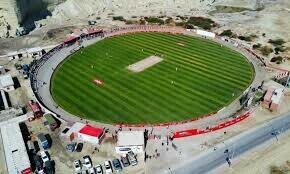• Govt mulls invoking Article 63(1g) against PTI chief
• Experts say trial under Official Secrets Act can be ‘double-edged sword’
THE “same-page” scenario has given hope to the coalition government that it can now get PTI Chairman Imran Khan disqualified from parliament for allegedly defaming the armed forces, though experts say it could be a bumpy ride.
Encouraged by the ISPR statement against Mr Khan, one option the government has is to invoke Article 63(1g) of the Constitution, which deals with disqualifying a lawmaker for bringing disrepute to the armed forces and judiciary.
Several legal experts and political analysts believe that the article can be invoked in the wake of accusations being made by Mr Khan against the armed forces, though they say a conviction from a court of law is required to get any person disqualified under this article.
Editorial: By going public with his accusations, Imran has taken a step he may find impossible to reverse
Hours after the PTI chairman, in a televised address on Friday evening, directly blamed government officials and an army officer for the attempt on his life, the military leadership in a statement termed these accusations “unacceptable and uncalled for” and demanded legal action against the former prime minister for defaming the institution and its officials.
Also on Friday, the Lahore High Court admitted for regular hearing a petition seeking Mr Khan’s removal as PTI chairman following his disqualification in the Toshakhana case under Article 63(1p) of the Constitution that stipulates temporary disqualification from being a member of parliament and office-bearer of a political party.
Surprisingly, a PTI dissident MNA, Noor Alam Khan, who spoke in the National Assembly before Mr Khan’s Friday speech and the ISPR’s statement, had already urged the government to proceed against his former party boss under Article 63(1g).
Ahmed Bilal Mehboob, president of the Pakistan Institute of Legislative Development and Transparency (Pildat), thinks the government has made an appropriate move by asking the chief justice to constitute a full court commission to probe Imran Khan’s allegations. However, he said it would be a long-drawn process to get Mr Khan disqualified despite enough evidence that he had been bringing the armed forces to disrepute.
In his opinion, a sessions court is the most appropriate forum for holding Mr Khan’s trial to enable him to use his constitutional right of appeal. He said the government could take the matter before any high court, stating that perhaps the Supreme Court would not like to take the matter directly.
On the situation after ISPR’s statement, Mr Mehboob regretted that it showed that the Constitution was there only to protect the judiciary and the army, as Imran Khan had also been making allegations against politicians, bureaucrats and even journalists for the past many years.
He said while mere legal action perhaps would not be sufficient amid the widespread public support enjoyed by Mr Khan, it might also be difficult for the PTI leadership to prove the charges against the government officials and the army officer.
Mudassir Rizvi, a representative of the Free and Fair Election Network (Fafen), was of the view that the Supreme Court could not act as a trial court, recalling that when it had done so in the case of Nawaz Sharif, the legal fraternity and civil society had raised objections, as Mr Sharif had not got his right of appeal.
Mr Rizvi said there were many clauses of the articles dealing with qualification and disqualification, but there was no clear procedure to implement them.
“It was due to this lack of clarity that Imran Khan contested the by-election even after his disqualification by the ECP in the Toshakhana case,” he said, adding that there was a need to do proper legislation to devise a procedure for invoking these articles.
Advocate Supreme Court Kashif Ali Malik said Article 63(1)(g), in its original form, did not require prior conviction by a court until it was amended through the 18th Amendment in 2010.
In 2014, he said, the court dismissed a petition seeking disqualification of the then prime minister Nawaz Sharif for making a statement on the floor of the assembly that he had not asked the army to become an arbitrator in the political standoff, which was contradicted by the ISPR. The verdict held that Mr Sharif could not be disqualified as there was no conviction against him by a court of competent jurisdiction.
When asked if Mr Khan could be tried under Official Secrets Act as he had claimed that he had been receiving information from within the intelligence agencies, another advocate Hasnain Kazmi said though the PTI chief could be proceeded for making public any privileged information, it would become difficult as the agencies would also be held equally responsible for such a breach.
Published in Dawn, November 6th, 2022














































